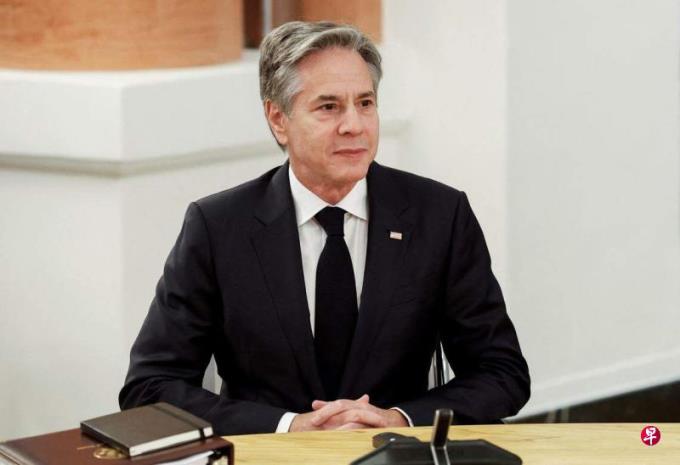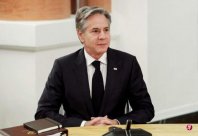
U.S. Secretary of State Brillings reportedly visited China next week. Rosenberg, chairman of the United States Association (AIT), revealed that the Taiwan issue is naturally the focus of the discussion of the trip to Brincken.Interviewed scholars analyzed that the United States tried to ensure stability in the United States' pre -election by guaranteeing the inauguration of Taiwan President Lai Qingde from Beijing President Lai Qingde.
Politico Politico reported on Wednesday (April 17) that Brinton will launch a four -day visit to China on April 23, but the report does not disclose which Chinese officials will meet with them.
The Ministry of Foreign Affairs of China also welcomed the visit of Brinken the next day, but did not mention the date.As of press time, the U.S. State Department has not announced the specific date and itinerary of Brinken's visit to China.
As Taiwan ’s president Lai Qingde will be sworn in on May 20, Brinkee is visiting China at this time how to confront China on the Taiwan issue, which is particularly noticeable.
According to Voice of the United States, Rosenberg on Friday (April 19) in an online discussion of the 45th anniversary of the signing of the Taiwan Relations Law in the United States Foreign Policy Research Institute (FPRI), and was also asked BlinkonWhen the new president of Taiwan visits mainland China, how will it discuss the Taiwan issue with China.
Rosenberg admits that almost every time in the United States and China to interact with, Taiwan will naturally ask Taiwan issues."The United States has always been clearly stated in Beijing that our policy has not changed, and it is still coherent. It will continue to be consistent. It is very important to be able to truly pass the direct information. I also expect usI will continue to see this approach. "
Before the news of the visit to China, the Taiwan Affairs Office of the State Council of China confirmed that Deputy Director Qiu Kaiming was confirmed on Tuesday (April 16). The day before, Daniel Kritenbrink, assistant Secretary of State of the United States in charge of East Asia and Pacific Affairs., Belshalan, senior director of the Chinese Affairs of the White House National Security Council.
The Taiwan Affairs Office of China did not disclose the specific content and details of the talks between the two parties, only to say that Qi Kaiming "clarified the principle position of the Chinese issue on the Taiwan issue."
The press release of the US State Department mentioned that the two sides discussed the issue of Taiwan.The United States emphasizes the importance of maintaining peace and stability of the Taiwan Strait, and reiterated that the "one China" policy guided by the United States with Taiwan Relations Law, three joint communiqués and six guarantees has not changed.
As the new government in Taiwan entered the last month, various signs showed that the Taiwan issue will definitely become an important topic for Brinkee's visit to China.
Zhang Deng, a professor at the Department of Political Science, Taiwan University, analyzed in an interview with Lianhe Morning Post. Based on election considerations, the Bayeng government must use the temporary relief of the 520 front desk.thing.Therefore, it will provide Beijing with a "re -guarantee" that Lai Qingde will not step on the line, hoping that Beijing can understand the United States on the Taiwan Strait issue.
On the other hand, Rosenberg also mentioned on Friday that although Beijing has set up a prerequisite for dialogue between the Taiwan Strait, the United States will continue to encourage dialogue."We think this is a good thing for the peace and stability of both sides of the strait."
Rosenberg also said that Lai Qingde revealed that he desired from confrontation to dialogue in his victory speech in January, expressing his interest in dialogue with the other side.
Zhang Deng and speculated that the United States is likely to start to consult with Lai Qingde 520 inauguration, but even if the United States is willing to provide guarantee to Beijing, Beijing is likely to be doubtful.
He said, after all, for Beijing, the United States has not practiced the consensus mentioned in the San Francisco Summit last year in the San Francisco Summit in terms of regional plugging or economic and trade sanctions."Based on Lai Qingde's lecture, this 'uncertain goodwill', I am afraid it is difficult to exchange for Beijing on the issue of Beijing in Russia, the Middle East, and even the Korean Peninsula, and they are willing to benefit from the United States."



